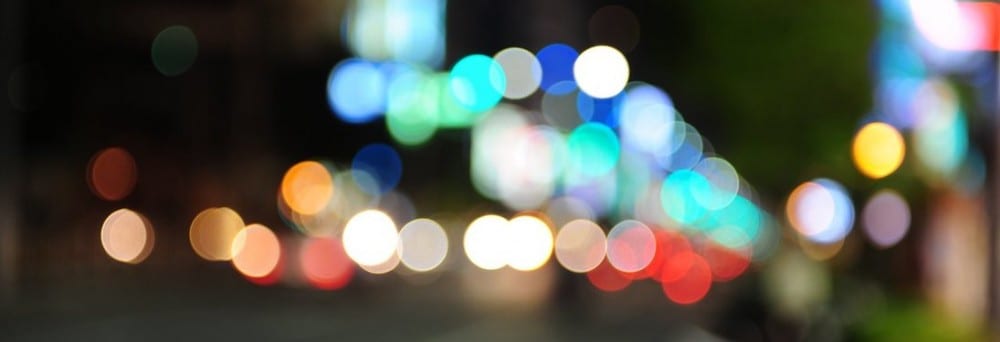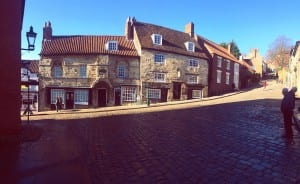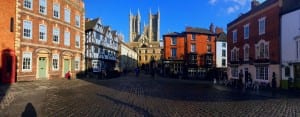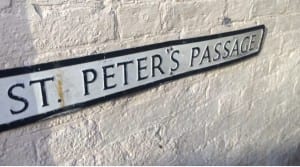Since Monday we’ve spent the time exploring all parts of Lincoln’s high street, finding out new places. In the nature of I wish I was lonely we decided to put our phones down and just look. There has been a number of spots and locations that we have highlighted to be interesting, some that we had never seen or paid attention to before.
The Jews Court/House has stood out to us, particularly when considering our brief of Liberation. Because of this we have spoken to the owner of which now is a book store and they have been able to supply us with records and information on the buildings history and Jewish community in Lincoln. This is something we are thinking about when further developing our final piece.
We have also decided to further our research by modelling Pearson’s Fieldworking; fieldwalking research approach. We shall revisit the location on a number of diverse days and weather conditions to note down changes in the nature of the place and create personal experiences.
Regarding this week’s task, Michael Pinchbeck’s Sit with me for a moment and remember was a big influence when creating our three minute piece. Our piece invites an audience member to experience an individual’s homelessness. Our piece is located in St Peters passage, an alley way that leads to the high street. We used a QR code for audiences to access our piece and to introduce the idea of pervasive media ‘Pervasive media uses technology to understand something about the situation and respond based on that information. Our piece asks the audience member to become the performer, to actively think about the words that are being spoken to them, to follow rules and to be the game player. ‘You go there, I and they do not’. (Pearson, 2010, pp. 23)
Mike, P. (2010) Site-specific performance. United Kingdom: Palgrave Macmillan.





